India, the world’s largest democracy, is known for uniting people of various backgrounds under one country. However, since the rise of the far-right Hindu Nationalist Bharatiya Janata Party (BJP) under Narendra Modi as the Prime Minister in 2014, the nation’s democratic and secular values which they took pride in are eroding rapidly.
One of the most fundamental values is press freedom. Presently, India is ranked 150th out of 180 countries in Press Freedom, its lowest ranking since the country’s independence. Presently, most major news outlets in the country are owned by business conglomerates or have direct ties with the ruling party. News is not reported in favour of the public interest, and the ones who do publish news criticizing the government do so with the threat of their safety looming over them. Journalists have been imprisoned for disseminating the truth about political incompetence and authoritarian tendencies. The most notable is the arrest of Siddique Kappan who spent two years in prison for reporting the developments of the Unnao Rape Case. The incompetence and deliberate concealment of the incident sparked nationwide outrage, yet justice was not served as the accused was a politician affiliated with the BJP.
Journalists have been assassinated for speaking against Hindu nationalism, known as Hindutva. Prominent journalist and activist Gauri Lankesh was murdered in 2017 by Hindutva supporters. She was a vocal critic of Hindu nationalist politics and had been involved in court cases against BJP members for her news articles. Other well-known women journalists such as Rana Ayyub and Arundhati Roy are often tormented with abuse online when they dissent against the government.
Censorship has also augmented under the Modi administration. Documentaries and movies which antagonize Hindus or address sensitive political topics undergo strict cuts for release or are banned. The most recent case of censorship is the banning of a BBC documentary highlighting Modi’s role in the 2002 Gujarat Riots which killed over 1,500 Muslims and displaced thousands more. The BBC offices in India were later raided by tax authorities, as an attempt at intimidation. India has also been the internet shutdown capital of the world for five consecutive years, accounting for 58% of all global shutdowns.
Moreover, the Indian government has abused the UAPA Act, a sedition law against dissidents. Journalists, activists, students, protestors, and professors have been arrested and imprisoned under this law. Famed cases include Sharjeel Imam and Safoora Zargar during the CAA/NRC protests in 2019. Between 2015-2021, over 10,500 people have been arrested under this law, with over half of them constituting the age group of 18-30. 75% of these cases have no chargesheets either.
The BJP is closely associated with the Hindu nationalist paramilitary group Rashtriya Swayamsevak Singh (RSS) which seeks to establish a Hindu state and constantly expresses strong anti-Islamic sentiments. Since BJP came into power, such rhetoric and bigotry have escalated nationally, particularly in BJP-ruled states of India. Politicians, religious leaders, and even citizens have incited the genocidal extermination of Muslims. India is home to over 200 million Muslims, the world’s largest Muslim minority population. They are scapegoated for societal disharmony and instability, labelled to be ‘enemies or betrayers’ of the country. This idea stems from the innate islamophobia embedded in Indian society following the Partition of 1947 separating India, Pakistan, and East Pakistan (now Bangladesh).
Under Modi’s leadership, several discriminatory laws against Muslims have been introduced. The most contentious is the National Register of Citizens/Citizen Amendment Act (CAA/NRC) which evoked nationwide protests lasting three months until COVID-19 restrictions were imposed. Over 300 people were arrested. The CAA bill intends to provide citizenship to refugees who fled religious persecution from neighbouring states but is limited to Buddhists, Hindus, Sikhs, Jains, Parsis, and Christians. Essentially, the bill excludes persecuted peoples such as the Muslim Rohingyas who are also fleeing an ethnic cleansing, Sri Lankan Tamils who face ethnic persecution, and Nepali refugees fleeing from Bhutan. The NRC intertwines with the CAA by ‘uniting’ the Hindus under one country while disenfranchising and expelling Muslims through the NRC bill. The CAA/NRC bill further divides Indian society into ‘original inhabitants’ and ‘infiltrators’ with Muslims largely being ostracized as the latter by Hindu Nationalists.
The testing grounds for the NRC bill occurred in Assam the northeastern state of India bordering Myanmar and Bangladesh. The state hosts the largest number of refugees in the country, mainly Rohingyas from Myanmar, and Bangladeshi immigrants. The NRC bill excluded over 1.18 million Indian Muslims from the new Citizens Registry due to ‘lack of proof of citizenship’, accounting for 60% of the overall demographics excluded. The burden of proof lies on the individuals to prove their Indian citizenry, which is disadvantageous for displaced people who lost their documents, poor people who do not have access to create documents, as well as indigenous people who rarely engage beyond their tribes. Losing statehood entails losing voting rights and citizenship, and potential deportation. The homes of Muslims in Assam have been demolished using bulldozers, even while it is occupied.
The epitome of BJP’s belligerence can be observed in its ruling states. The society ruined by religious differences further deepens its division when BJP gains authority. If they fail to win state elections, winning candidates of other parties join BJP while keeping their legislative seats, allowing BJP to come to power. In BJP-ruled states, targeted lynching against Muslims is common. The reasoning behind such nefarious acts ranges from the consumption of beef to engaging in romantic relationships with Hindus. Pogroms and riots have also transpired in Saffron states, spawning the killing and displacement of Muslims.
In the early 2010s, India was projected as one of the competing global superpowers alongside China. Today, the economic circumstances are one of the worst in the region. India is ranked 107 out of 121 countries in the Global Hunger Index, unemployment and inflation are on the rise, and corruption is rampant. The most recent case of corruption was exposed by the Hindenburg Research Report against Indian billionaire tycoon Gautam Adani. His company Adani Group was accused of money laundering, stock manipulation, and accounting fraud report which enabled loan borrowing from national banks while under substantial debt. The Adani Group owns several airports in India and has close links with Modi.
The Indian government under Modi was also inexplicably incompetent in mitigating the COVID-19 crisis. Over half a million deaths were reported in the country, while a bulk remains undocumented. The government’s handling of the pandemic was catastrophic. Beginning with a nationwide lockdown imposed within 24 hours in a country home to billions and ending with hospitals operating with insufficient medical supplies to cater to patients. India has one of the lowest spending on healthcare, constituting only 3.5% of the national GDP.
Submit here
The unprecedented crisis complemented by a nationalist government provided a recipe for disaster as more focus was given to turning the pandemic into a communal issue, and showcasing how great the country is, over alleviating the crisis and improving access to healthcare and medical equipment. The nation had patients treated inside a van, parked next to a streetlight holding a banner of Modi’s success in exporting vaccines.
India is currently placed under Genocide Emergency by the Genocide Watch and is headed towards economic and democratic turmoil. Given the present political circumstances, further economic deterioration, and higher likelihood of scapegoating Muslims who will face the brunt in the form of violence when a questioning public channels their anger away from the incompetent government engendering this crisis.
The prominence of the BJP can be attributed to the decades-long failures of the Indian National Congress Party which governed the country since independence. While India has a long history of communal unrest, under Modi’s administration, these circumstances have magnified, and the country is now more divided than ever.
Sources Abdulla, S. & Zaffar, H. (2022) ‘Sharjeel Imam: Indian activist languishes in jail for a speech’, Al Jazeera [online] available from <https://www.aljazeera.com/news/2022/2/5/india-muslim-activist-jailed-for-a-speech-completes-two-years-in> Al Jazeera (2022) India slips in Global Hunger Index, ranks 107 out of 121 nations [online] available from <https://www.aljazeera.com/news/2022/10/15/india-hunger> Bajekal, N. (2021) ‘India’s COVID-19 Crisis Is Spiraling Out of Control. It Didn’t Have to Be This Way’, Time [online] available from <https://time.com/5964796/india-covid-19-failure/> Basu, N. (2022) ‘Women journalists trolled and targeted: India’, Institute of Commonwealth Studies – School of Advanced Study, University of London [online] available from <https://commonwealth.sas.ac.uk/blog/women-journalists-trolled-and-targeted-india Bhat, P. (2022) ‘Why Gauri Lankesh was assassinated: The story of an indoctrinated engineer’, The News Minute [online] available from <https://www.thenewsminute.com/article/why-gauri-lankesh-was-assassinated-story-indoctrinated-engineer-167546> Chatterji, A. P., Desai, M., Mander, H. & Azad, A. K. (2021) ‘Detention, Criminalisation, Statelessness: The aftermath of Assam’s NRC’, The Wire [online] available from <https://thewire.in/rights/detention-criminalisation-statelessness-the-aftermath-of-assams-nrc> Doshi, G. (2021) ‘In seven years, 10,552 Indians have been arrested under UAPA – but only 253 convicted’, Scroll.in [online] available from <https://scroll.in/article/1010530/in-seven-years-10552-indians-have-been-arrested-under-uapa-and-253-convicted> Ellis-Peterson, H. (2023) ‘Indian journalist freed on bail after being jailed for two years without trial’, The Guardian [online] available from <https://www.theguardian.com/world/2023/feb/02/indian-journalist-freed-bail-siddique-kappan-jailed-two-years-without-trial> Ellis-Peterson, H. (2023) ‘What is the BBC Modi documentary and why is it so controversial’, The Guardian [online] available from <https://www.theguardian.com/world/2023/feb/14/why-is-bbc-report-on-narendra-modis-handling-of-sectarian-riots-in-2002-so-controversial> Ellis-Peterson, H. & Stacey, K. (2023) ‘Tax raids on BBC offices in India ‘deeply worrying’, says Labour’, The Guardian [online] available from <https://www.theguardian.com/world/2023/feb/21/tax-raids-on-bbc-offices-in-india-deeply-worrying-says-labour> Genocide Watch (2022) India Genocide Warning [online] available from <https://www.genocidewatch.com/single-post/india-genocide-emergency> Hausman, G. (2020) ‘Citizenship Amendment Act (CAA) and National Register of Citizens (NRC)’, Global Studies Blog – Columbia University Libraries [online] available from <https://blogs.cul.columbia.edu/global-studies/2020/12/10/citizenship-amendment-act-caa-and-national-register-of-citizens-nrc/> Hindenburg Research (2023) Adani Group: How The World’s 3rd Richest Man Is Pulling The Largest Con In Corporate History [online] available from <https://hindenburgresearch.com/adani/> Krishnan, M. (2023) ‘India: Internet Shutdown Capital of the World’, DW [online] available from <https://www.dw.com/en/india-internet-shutdown-capital-of-the-world/a-64997062> Ning, A. (2022) ‘Muslims and Islam in India’, Asia Highlights [online] available from <https://www.asiahighlights.com/india/muslim-and-islam> Reporters Without Borders (2022) Press Freedom Index [online] available from <https://rsf.org/en/index> World Organization Against Torture (2020) Safoora Zargar, pregnant and detained for peacefully protesting [online] available from <https://www.omct.org/en/resources/statements/safoora-zargar-pregnant-and-detained-for-peacefully-protesting>

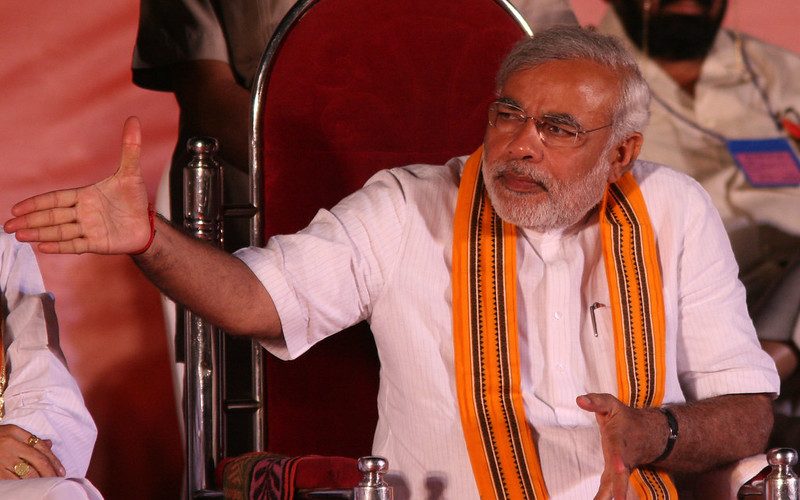
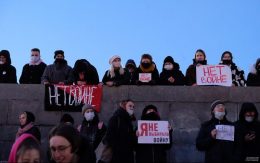
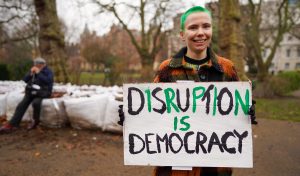
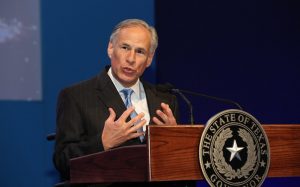
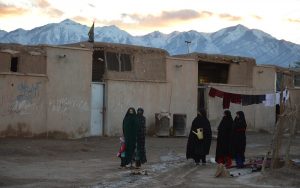


Be First to Comment